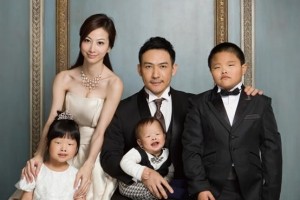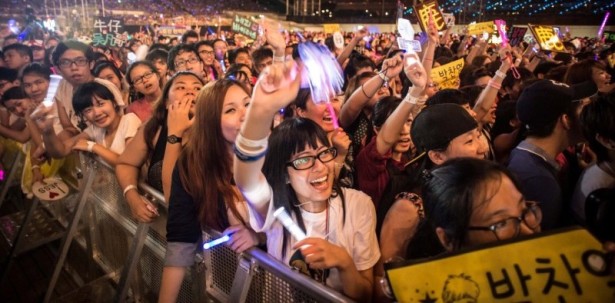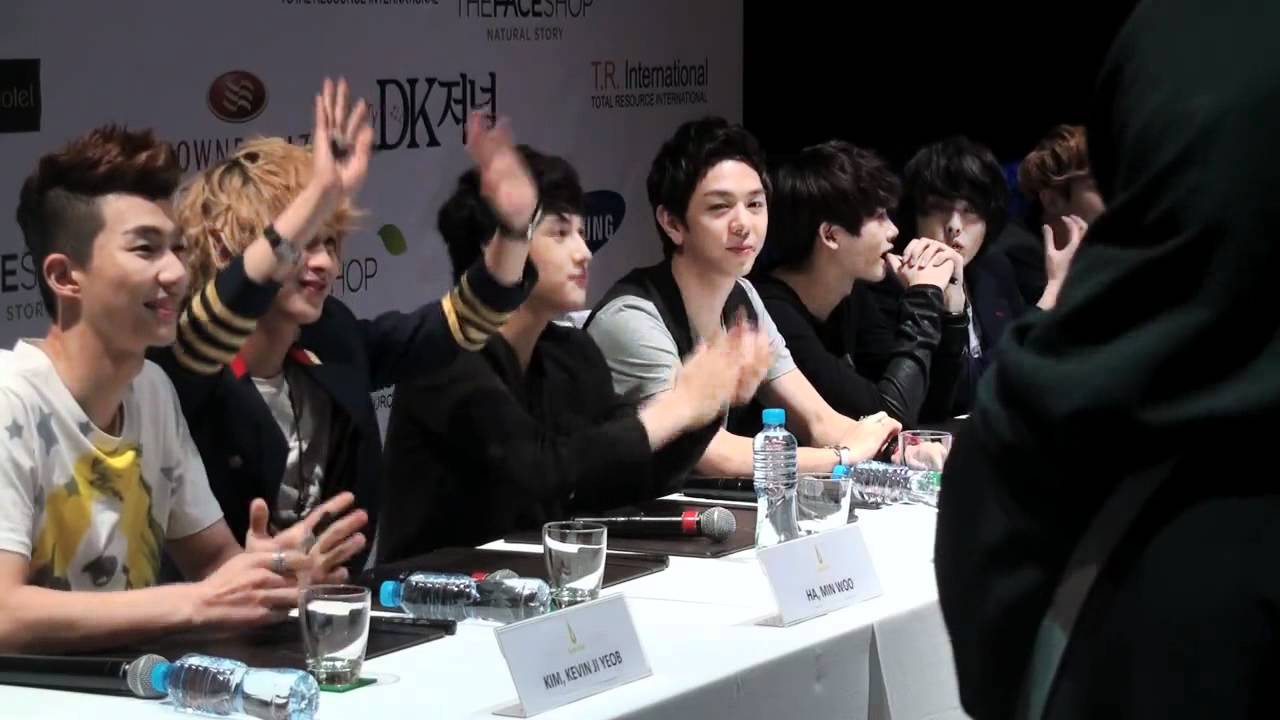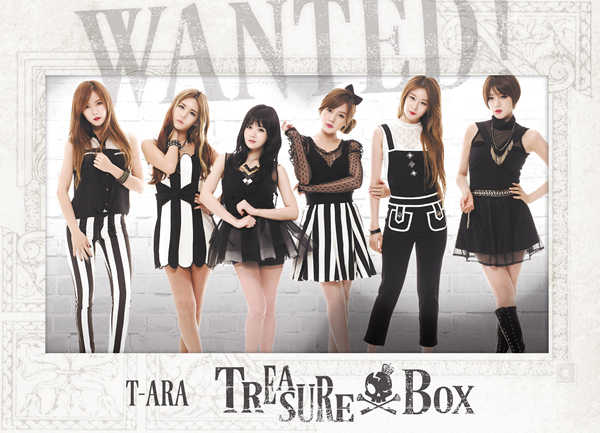 For some reason, I ended up talking with a friend of Kim Jong-il’s death (more specifically, about the brief report on it that showcases a population in tears to the point of grief). I used this as an example of how the angle of an article (such as the infamous New York Times crap) can completely alter the perception of the reader, even if the writer doesn’t officially adopt a position. But then I was puzzled by the answer: in short, he interrupted me to tell me Asians are like that. Then another friend of his joined the discussion and she informed me among others about how good Chinese people are at copying, throwing the Samsung – Apple evidence into her tirade. Of course, the discussion provided a lot of logically mind-numbing (and not in a good way) arguments, but I was left wondering: how are people uninterested and unwilling to discover anything about Asians getting their info from? And I started looking for things close to me, that I stumble upon on a daily basis, concerning relations between the Western world and the East-Asian countries. On top of my head, I got this:
For some reason, I ended up talking with a friend of Kim Jong-il’s death (more specifically, about the brief report on it that showcases a population in tears to the point of grief). I used this as an example of how the angle of an article (such as the infamous New York Times crap) can completely alter the perception of the reader, even if the writer doesn’t officially adopt a position. But then I was puzzled by the answer: in short, he interrupted me to tell me Asians are like that. Then another friend of his joined the discussion and she informed me among others about how good Chinese people are at copying, throwing the Samsung – Apple evidence into her tirade. Of course, the discussion provided a lot of logically mind-numbing (and not in a good way) arguments, but I was left wondering: how are people uninterested and unwilling to discover anything about Asians getting their info from? And I started looking for things close to me, that I stumble upon on a daily basis, concerning relations between the Western world and the East-Asian countries. On top of my head, I got this:
- Victoria’s Secret lingerie line which makes you exotic, because Asian women have their mysterious sensual ways of seducing
- KevJumba’s complaint about the nonexistent Totem Pole
- The Feng Jian-mei case
- Awkward.’s constant stereotyping of Ming and her family, her lack of development and the geeky, ridiculously well-informed and scheming Asian Mafia
- 2 Broke Girls’ portrayal of Han, a Korean who’s short, is no fun and can’t get laid
- Chelsea Lately’s remark about Psy as an Asian she would date (because the others are obviously substandard)
- Marcus’ relentless cursing about an Asian cab-driver and his slit-eyed friends in Irreversible (though one could argue the nature of the movie hardly indicates the writer/director’s intention of being politically-correct or family-friendly)
- Hollister models in South Korea doing the “chinky” eyes
- Daria’s Tiffany speaking pattern
I picked these topics mainly because they were random and offered me a look at how an average citizen forms its opinion. And many of these suffer from a variety of basic issues regarding prejudice, such as the way only sensational bits, meant to further feed the stereotypes, make the news or the upsetting state of Asian-Americans’ representation in cinematography. And onto the deep core, how little thought is being given to approaching these subjects. It’s one thing for preconceived ideas to exist; what’s inherently wrong is insisting on maintaining them. There are distinct ways of portraying people that go beyond assuming they’re from a different culture, thus they act in a certain way. Asian women and men are women and men, meaning humans as much as those in the West. But most of all, selecting certain news from current events crops the reality of the Asian people and deliver a digestible version meant to adapt comfortably to the existing altered image.

Take for example the assumption the prevalence of double eyelid-surgery and whitening obsession comes from their desire to look like Westerners. The observation completely ignores the fact Koreans and Japanese have a 20% opportunity to be born with double eyelids, while for Chinese it is 50%. The preference for double eyelids is nothing new and atypical, since the genes weren’t opposed to this ideal for Asians in the first place. And while the presence of Americans on the South Korean territory chronologically entangles with the surge in cosmetic operations of this kind, the growth rate could be explained also by economic factors or just a wish to try on new things that weren’t accessible before (plastic surgery). The same with skin whitening: due to historical baggage, there’s a universal favoritism of white skin color that doesn’t necessarily have to do with white people.
The recurring discussion about how Asians modify their genetic constitution and renounce part of their identity is linked more to the Western stereotype of Asians as imitators and uses half-truths (such as double eyelids being genetically rare for Asians or a trait only of the white people, in disregard to other races) to sustain it. Besides, there’s something Paloma has brought to discussion before: the portrayal of Europe as a far, far-away continent with odd people that sometimes share their behavior. I’d say the reversed situation happens also with propagating stereotypes: we like to believe there’s another breed of people, under completely different conditions, living by an utterly strange mentality. Another dimension, still accessible at the price of a plane ticket, that’s not normal, and by its abnormality consolidates our definition of normal. Reality gets sometimes dull and the idea we are a uniform population, sharing the same human core, can be scary. The illusion of “exotic” women and an occasional yellow fever may indulge people into believing in another part of the world, there’s an alternative with differently-configured people.

The same happens with South Korea’s accusations of a hyper-sexualized West that come up every time sex is tackled in the K-pop sphere. A recent article talked about limiting teenagers’ sexualization blames USA and the attempts of K-pop to meet their standards with the current “racy” choreographies. This isn’t a new thing at all: many writers and fans themselves turn US down for its sexual content and want K-pop to stay cute and safe for work. But isn’t it the same thing as with the West? K-pop sells sex and renouncing sexual attraction from K-pop means censoring every release. As music gets popular and groups flood the music industry, entertainment companies try to make a quick impression. South Korea is a democratic country that has opened its gates to the outside worlds; mentalities are changing. And I could go on with other reasons why sex works in the entertainment biz, causes not incredibly related to the Western influence. As a country, it’s more appealing though to blame another one for uncomfortable acknowledgements. Somewhere, in that big, other reality, things are worse. And this conception helps normalize their own vision of normality. Traditional values oppose the way South Korea hints at shaping itself and it might be cozy to believe some things will stay abroad and not tint it.
The point is, our projections of one another will never be wholesome, but that’s no excuse for biased information. Laziness hardly justifies the incomplete and lousy attempt at cultural exchange. But enough with my version of things. What do you think? What stereotypes have you run into? What causes do you think are out there?
(Sociology of Emotions, ROK Drop, Daily Mail, kevjumba, Christian Post, Korea Bang, MTV, Korea Times, Katherine Zane — Reflections on a Yellow Eye, Washington Eye Care)


